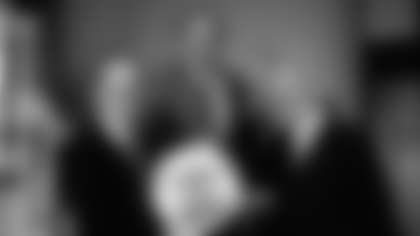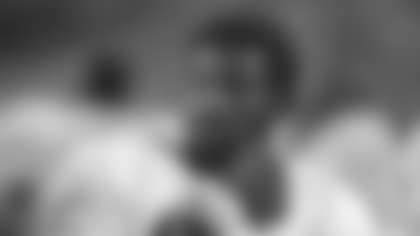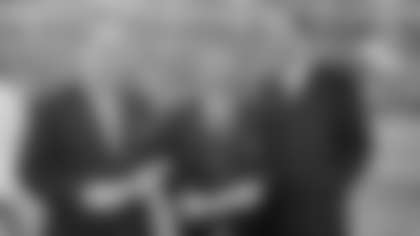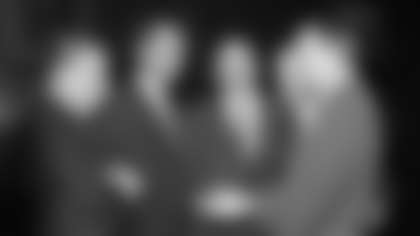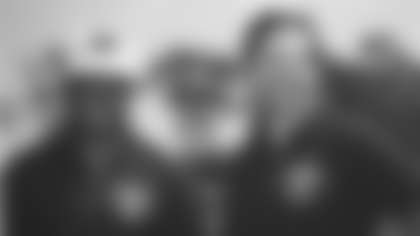UNSUNG HEROES: Most avid Chiefs fans can cite the exploits of the great players in team history, but there are many other players who have escaped the hype, but yet played vital roles in their team's success and, for one reason or another, have slipped the minds of many fans then and now. Throughout the coming year, we will profile some who did more than simply play a part when they took the field for the Kansas City Chiefs.
Playing professional football was not the beginning and end of Frank Jackson's life, as it is for many who have played the game of football. Although a recognized star running back and quarterback at Southern Methodist University (SMU), he sought a career and a life that reached beyond the football field.
A spiritual man, Jackson had originally contemplated a career in the ministry, and while at SMU he had become a licensed preacher in the Methodist church and had preached at many revivals. But he developed an interest in dentistry and originally intended to enroll in a four-year course at the University of Tennessee after college and later at Baylor University, but he first opted to sign with Lamar Hunt's Dallas Texans of the American Football League.

He had offers from the NFL and had spoken to Green Bay Packers' coach Vince Lombardi before choosing to stay closer to home in Texas, as did his college teammate, Jerry Mays, who also signed with Dallas. Jackson joined the Texans in 1961 as a running back and immediately drew attention when he was used to relieve AFL all-star Abner Haynes from time to time. He had been an all-around athlete in high school and college – he was all-state in baseball and football and was a sprinter, too.
At SMU, he played halfback until his senior season when the coach pitched him in at quarterback, where he led the team in passing and rushing. With the Texans, he eventually added kickoff return duties, but it was as a receiver that he ultimately settled, picking up many of the skills needed at that position by watching and eventually working out with the Baltimore Colts' Raymond Berry, who had also played at SMU and was from Jackson's hometown of Paris, Texas.
As his football career continued to blossom, the thought of what-comes-after was never far from his mind. He continued his pre-dental studies in the offseason at East Texas State. He had worked his way into a starter's role at flanker by 1962 and was a member of the Texans' AFL championship team that year. But by 1963, he was facing the decision of whether to continue to play football or become a full-time medical student.
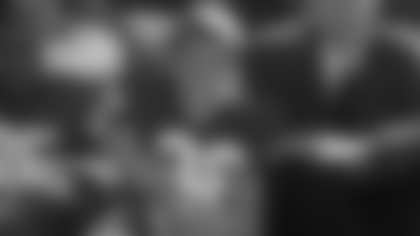
He remained a starter with the Chiefs when the team moved to Kansas City until 1965 when he was named to the All-AFL team. At that point, he was considering retirement and intended to continue his studies. As a consequence, the Chiefs left him exposed in the AFL's 1966 expansion draft, but he was surprised when the Miami Dolphins took him.
He had made it clear he would not report to Miami, but had a change of heart. He had already been enrolled in Kansas City's School of Osteopathy and Surgery and had completed a year of medical school.
So, what changed his mind?
Dolphins ownership advised him to come on board and just see what happened. He did so, and used his money from football to pay his medical school costs. But during his final season in Miami, he happened to meet Percy Foreman, a famed criminal lawyer from Houston who had gained notoriety in a well-publicized murder trial.
Continuing his education at the University of Health Sciences in 1965, he had an almost immediate change of heart. What he saw in Foreman and, more importantly, what the lawyer told him, caused him to up and suddenly put aside any idea of medicine and switch to law.
Foreman had said, "Frank, your personality shouldn't be confined to an 8-by-8 room."
Now, using the money the Dolphins had paid him, he enrolled in the University of Miami's law school and graduated in 1971. Returning to Texas, he joined the Dallas County District Attorney's staff as a prosecutor and remained on staff until 1973.
Practicing law had Jackson's competitive juices flowing, much as football had. In 50 jury cases, Jackson gained 43 not-guilty verdicts. Not confined to just criminal cases, he gained nationwide attention as the result of a civil suit involving the two daughters of Lee Harvey Oswald. His fame grew, and he was inducted into the Texas Criminal Defense Lawyer Association Hall of Fame.
Still, the success and exposure he gained in court did nothing to diminish his memories of his time with the Chiefs. He gained 2,532 yards in receptions. Twice he caught four touchdown passes in a game, doing so against Denver in 1961 and San Diego in 1964.
"The Chiefs will always be my team," he said in an interview years later. "We were close, closer than the pro football players of today are with each other. Those were the steak and potatoes days."



